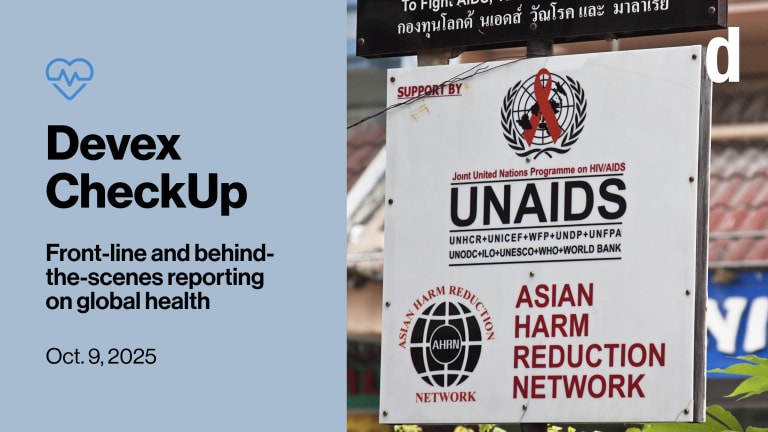Polio eradication and antimicrobial resistance were among the biggest issues at the World Health Organization’s weeklong executive board meetings, which concluded on Tuesday.
After selecting the top three director-general candidates who will vie for the position come May, the board also put forth a recommendation for the assembly to use a paper-based voting system, citing errors and security issues in the electronic system.
Sania Nishtar of Pakistan, Tedros Adhanom Ghebreyesus of Ethiopia, and David Nabarro of the United Kingdom will face the 194 WHO member countries come May for the position of director-general.
Printing articles to share with others is a breach of our terms and conditions and copyright policy. Please use the sharing options on the left side of the article. Devex Pro members may share up to 10 articles per month using the Pro share tool ( ).








